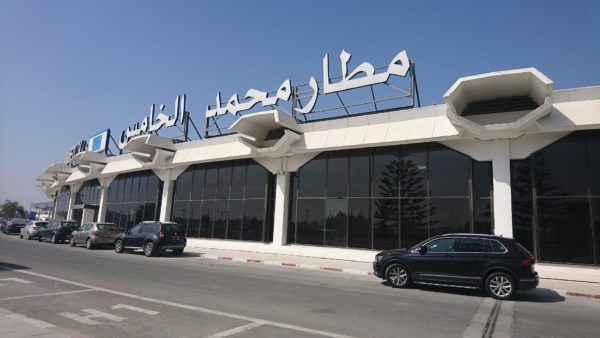Odebrecht S.A. a global construction conglomerate based in Brazil, and Braskem S.A., a Brazilian petrochemical company, pleaded guilty on 21 December and agreed to pay a combined total penalty of at least $3.5bn to resolve charges with authorities in the US, Brazil and Switzerland arising from schemes to pay hundreds of millions of dollars in bribes to government officials around the world.
The companies pleaded guilty in the US federal court in Brooklyn to conspiring to violate a US foreign bribery law after an investigation involving political kickbacks and Brazil’s state oil company, Petrobras.
The US Justice Department dubbed the case the "largest foreign bribery case in history". According to its admissions, Odebrecht engaged in a massive and unparalleled bribery and bid-rigging scheme for more than a decade, beginning as early as 2001. During that time, Odebrecht paid approximately $788m in bribes to government officials, their representatives and political parties in a number of countries in order to win business in those countries.
"Odebrecht and Braskem used a hidden but fully functioning Odebrecht business unit-a ‘Department of Bribery,’ so to speak-that systematically paid hundreds of millions of dollars to corrupt government officials in countries on three continents," said US Deputy Assistant Attorney General Suh in announcing the decision with the FBI.
"Such brazen wrongdoing calls for a strong response from law enforcement, and through a strong effort with our colleagues in Brazil and Switzerland, we have seen just that. I hope that today’s action will serve as a model for future efforts."
"These resolutions are the result of an extraordinary multinational effort to identify, investigate and prosecute a highly complex and long-lasting corruption scheme that resulted in the payment by the defendant companies of close to a billion dollars in bribes to officials at all levels of government in many countries," said US Attorney Robert L. Capers of the Eastern District of New York.
"In an attempt to conceal their crimes, the defendants used the global financial system – including the banking system in the United States – to disguise the source and disbursement of the bribe payments by passing funds through a series of shell companies. The message sent by this prosecution is that the United States, working with its law enforcement partners abroad, will not hesitate to hold responsible those corporations and individuals who seek to enrich themselves through the corruption of the legitimate functions of government, no matter how sophisticated the scheme."
Odebrecht and Braskem used a hidden ‘Department of Bribery’ that systematically paid hundreds of millions of dollars to corrupt government officials– Sung-Hee Suh, US Deputy Assistant Attorney General
Odebrecht pleaded guilty to a one-count criminal information filed by the Criminal Division’s Fraud Section and the US Attorney’s Office in the US District Court for the Eastern District of New York, charging the company with conspiracy to violate the anti-bribery provisions of the Foreign Corrupt Practices Act (FCPA).
Odebrecht agreed that the appropriate criminal fine is $4.5bn, subject to further analysis of the company’s ability to pay the total global penalties. In related proceedings, Odebrecht also settled with the Ministerio Publico Federal in Brazil and the Office of the Attorney General in Switzerland.
Under the plea agreement, the United States will credit the amount that Odebrecht pays to Brazil and Switzerland over the full term of their respective agreements, with the United States and Switzerland receiving 10% each of the principal of the total criminal fine and Brazil receiving the remaining 80%. The fine is subject to an inability to pay analysis to be completed by the Department of Justice and Brazilian authorities on or before March 31, 2017, because Odebrecht has represented it is only able to pay approximately $2.6 billion over the course of the respective agreements.
Sentencing has been scheduled for April 17, 2017.
Braskem, whose American Depositary Receipts (ADRs) are publicly traded on the New York Stock Exchange, separately pleaded guilty to a one-count criminal information filed in the Eastern District of New York charging it with conspiracy to violate the anti-bribery provisions of the FCPA.
Braskem agreed to pay a total criminal penalty of $632m. Sentencing has not yet been scheduled. In related proceedings, Braskem also settled with the US Securities and Exchange Commission (SEC), the Ministerio Publico Federal in Brazil and the Office of the Attorney General in Switzerland.
Under their respective plea agreements, Odebrecht and Braskem are required to continue their cooperation with law enforcement, including in connection with the investigations and prosecutions of individuals responsible for the criminal conduct.
The combined total amount of United States, Brazilian and Swiss criminal and regulatory penalties paid by Braskem will be approximately $957m. The combined total amount of penalties imposed against Odebrecht will be at least $2.6bn and up to $4.5bn. With a combined total of at least $3.5bn, today’s resolutions with Odebrecht and Braskem are the largest-ever global foreign bribery resolution.
Complex network of shell companies
The criminal conduct was directed by the highest levels of the company, with the bribes paid through a complex network of shell companies, off-book transactions and off-shore bank accounts.
As part of the scheme, Odebrecht and its co-conspirators created and funded an elaborate, secret financial structure within the company that operated to account for and disburse bribe payments to foreign government officials and political parties. By 2006, the development and operation of this secret financial structure had evolved such that Odebrecht established the "Division of Structured Operations," which effectively functioned as a stand-alone bribe department within Odebrecht and its related entities.
Until approximately 2009, the head of the Division of Structured Operations reported to the highest levels within Odebrecht, including to obtain authorisation to approve bribe payments. After 2009, this responsibility was delegated to certain company business leaders in Brazil and the other jurisdictions. To conceal its activities, the Division of Structured Operations used an entirely separate and off-book communications system, which allowed members of the Division of Structured Operations to communicate with one another and with outside financial operators and other co-conspirators about the bribes via secure emails and instant messages, using codenames and passwords.
The Division of Structured Operations managed the "shadow" budget for the Odebrecht bribery operation via a separate computer system that was used to request and process bribe payments as well as to generate and populate spreadsheets that tracked and internally accounted for the shadow budget.
These funds for the company’s sophisticated bribery operation were generated by the Odebrecht Finance Department through a variety of methods, as well as by certain Odebrecht subsidiaries, including Braskem. The funds were then funneled by the Division of Structured Operations to a series of off-shore entities that were not included on Odebrecht’s balance sheet as related entities. The Division of Structured Operations then directed the disbursement of the funds from the off-shore entities to the bribe recipient, through the use of wire transfers through one or more of the off-shore entities, as well as through cash payments both inside and outside Brazil, which were sometimes delivered using packages or suitcases left at predetermined locations.
Odebrecht, its employees and agents took a number of steps while in the United States to further the scheme. For instance, in 2014 and 2015, while located in Miami, two Odebrecht employees engaged in conduct related to certain projects in furtherance of the scheme, including meetings with other co-conspirators to plan actions to be taken in connection with the Division of Structured Operations, the movement of criminal proceeds and other criminal conduct. In addition, some of the off-shore entities used by the Division of Structured Operations to hold and disburse unrecorded funds were established, owned and/or operated by individuals located in the United States. In all, this conduct resulted in corrupt payments and/or profits totalling approximately $3.3bn.
The corporate resolutions
The department reached these resolutions with Odebrecht and Braskem based on a number of factors, including: the failure to voluntarily disclose the conduct that triggered the investigation; the nature and seriousness of the offense, which spanned many years, involved the highest levels of the companies, occurred in multiple countries and involved sophisticated schemes to bribe high-level government officials; the lack of an effective compliance and ethics program at the time of the conduct; and credit for each company’s respective cooperation. The companies also engaged in remedial measures, including terminating and disciplining individuals who participated in the misconduct, adopting heightened controls and anti-corruption compliance protocols and significantly increasing the resources devoted to compliance.
The criminal penalty for Odebrecht reflects a 25% reduction off the bottom of the US Sentencing Guidelines fine range because of Odebrecht’s full cooperation with the government’s investigation, while the criminal penalty for Braskem reflects a 15% reduction off the bottom of the US Sentencing Guidelines as a result of its partial cooperation.
- From the US Department of Justice
Image via Odebrecht
Further Reading:










